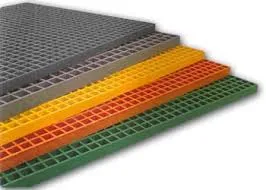loading...
- No. 9, Xingyuan South Street, Dongwaihuan Road, Zaoqiang County, Hengshui, Hebei, China
- admin@zjcomposites.com
- +86 15097380338
- Welcome to visit our website!
FRP Tanks for Efficient Water Treatment Solutions
FRP Vessels for Water Treatment An Overview
FRP, or Fiber Reinforced Polymer, vessels have increasingly become essential components in the modern water treatment industry. These vessels are engineered with composite materials that significantly enhance their performance, longevity, and efficiency in treating various types of water, including drinking water, wastewater, and industrial effluents. This article explores the advantages, applications, and future prospects of FRP vessels in water treatment.
Advantages of FRP Vessels
1. Corrosion Resistance One of the most significant benefits of FRP vessels is their exceptional resistance to corrosion. Traditional materials such as steel and aluminum often succumb to rust and other chemical reactions when exposed to water and various chemicals. In contrast, FRP vessels are designed to withstand harsh environments and chemical exposures, ensuring their durability and extending their service life.
2. Lightweight FRP vessels are significantly lighter than their metal counterparts. This lightweight nature simplifies transportation and installation, reducing labor and logistical costs. Moreover, the lightweight characteristic allows for the construction of large-scale water treatment systems without the need for extensive structural support.
3. Design Flexibility The manufacturing process of FRP allows for a high degree of design flexibility. Engineers can customize the size, shape, and features of the vessels to meet specific water treatment requirements. This adaptability is particularly valuable in various applications, ranging from small-scale residential systems to large industrial setups.
4. Thermal Insulation FRP materials provide excellent thermal insulation, which is crucial in certain water treatment processes. By maintaining optimal temperatures, FRP vessels can enhance the efficiency of biological treatment methods and other processes that require stable thermal conditions.
5. Cost-Effectiveness Although the initial cost of FRP vessels can be higher than traditional materials, their long-term benefits can lead to significant cost savings. Reduced maintenance, longer lifespans, and lower energy requirements contribute to decreased operational costs over time.
Applications of FRP Vessels
frp vessel for water treatment

FRP vessels serve a wide range of applications in water treatment, including
- Filtration Used in sand, activated carbon, and membrane filtration systems, FRP vessels effectively remove contaminants from water, enhancing its purity and quality. - Chemical Storage and Mixing Many water treatment processes require the storage and mixing of chemicals, such as flocculants and disinfectants. FRP vessels are ideal for this purpose due to their corrosion resistance and structural integrity.
- Biological Treatment FRP vessels are utilized in aerobic and anaerobic biological treatment systems. Their design allows for optimal conditions for microbial growth, thereby improving the breakdown of organic matter in wastewater.
- Desalination In areas where freshwater resources are limited, FRP vessels are employed in desalination plants, where seawater undergoes treatment to produce potable water. The corrosion resistance of FRP makes it suitable for the high-salinity environments encountered in these processes.
Future Prospects
As the demand for clean water continues to rise due to population growth and industrial expansion, the role of FRP vessels in water treatment is likely to increase. Innovations in FRP technologies are expected to enhance their functionality, making them even more efficient and effective for various water treatment applications.
Additionally, with growing environmental concerns, the use of sustainable materials and processes will become paramount. FRP vessels can be manufactured with eco-friendly resins and materials, aligning with the global trend towards sustainability.
In conclusion, FRP vessels represent a significant advancement in the water treatment industry. Their robust attributes, combined with their versatility in application, make them a vital asset in addressing the world's growing water treatment challenges. As technology continues to evolve, FRP vessels will undoubtedly play an increasingly prominent role in ensuring access to clean and safe water for future generations.
-
GRP Structures: The Future of Lightweight, High-Performance EngineeringNewsJun.20,2025
-
FRP Water Tank: High-Performance Storage for Corrosive and Clean Water SystemsNewsJun.20,2025
-
FRP Square Tube: The New Industry Standard for Chemical and Structural ApplicationsNewsJun.20,2025
-
FRP Pultruded Profiles: The Ultimate Choice for Lightweight Structural StrengthNewsJun.20,2025
-
FRP Handrails: The Safer, Smarter, and Stronger Choice for Modern InfrastructureNewsJun.20,2025
-
FRP Grating: The Smart Solution for Durable, Lightweight Industrial FlooringNewsJun.20,2025
-
Why Choose a Galvanized Water Tank for Your Storage NeedsNewsMay.21,2025
